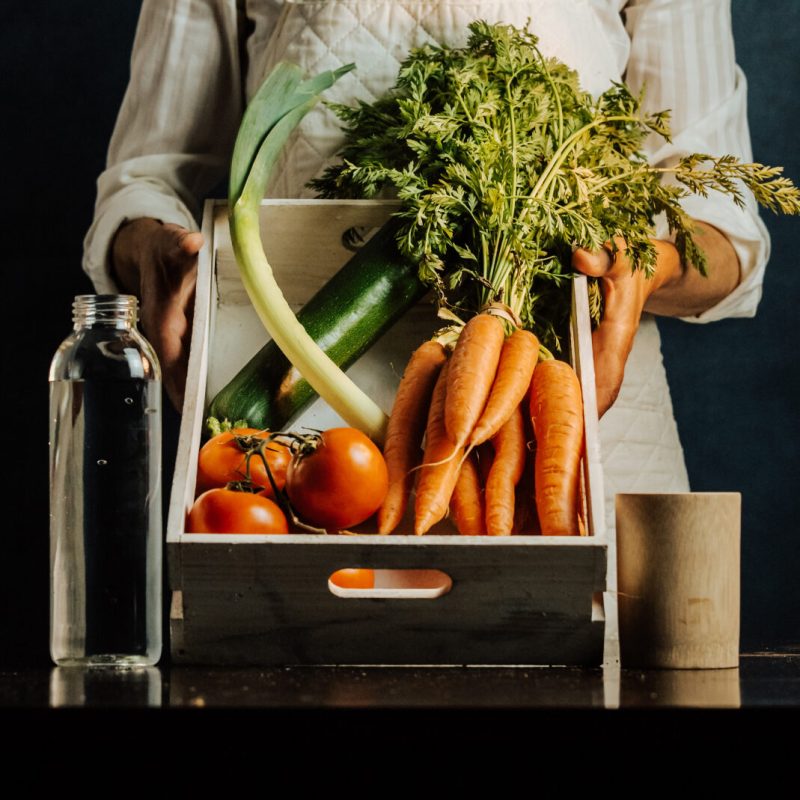Smallbrooks blog
Why grocery retailers should have a crowdfunding platform
Af Rocio Triboli
The food and grocery industry has been challenged in many ways throughout recent years due to numerous reasons such as the worldwide pandemic, wars, and the global surge in inflation. As the industry faces a rise in online grocery services, the need for a digital-first approach is now greater than ever in order for the stores to remain competitive.
Additionally, preferences have shifted and consumers are getting more conscious and demanding when it comes to sustainable and locally sourced products. It has become a necessity for retailers to find products, food producers, and food tech entrepreneurs that are more local and sustainable. Such suppliers are often small and not yet ready to be on the shelves of large supermarkets, so other means of collaboration are needed

In this context, retailers have a lot to gain from having their own crowdfunding platform. It can help them stay competitive and engage with their customers in new and innovative ways. In this article, we will discuss the various benefits that grocery retailers can achieve by having their own crowdfunding platform.
1- Increase engagement
By having their own crowdfunding platform, grocery retailers can build a community of consumers who interact more with the suppliers and are invested in the products and services they support.
Customers can contribute to product development and have a say in the products that are offered, leading to increased engagement and a sense of ownership among the customer base. By involving the community in the process of bringing new food products to market, food retailers can build stronger relationships with their customers and develop a more loyal following.
2- Find new suppliers and innovative products
In today’s fast-paced and competitive food industry, it is important to stay up to date with industry trends as well as to differentiate themselves from the competition. A crowdfunding platform can provide a valuable way to discover new and innovative products and suppliers that will help retailers stand out in a crowded market.
Through crowdfunding campaigns, retailers can engage with a wide range of producers and suppliers who otherwise might have been overlooked because they don’t have the resources or connections to get their products into mainstream retail channels. By providing a platform for these small-scale producers to showcase their products and reach a wider audience, crowdfunding can help to democratize the food industry and give a voice to emerging trends and ideas.
In addition, a successful crowdfunding project can be the entry point to the supermarkets’ shelves. By launching a crowdfunding campaign, food retailers can see how well a product or supplier resonates with customers and decide to commit to a large-scale order or long-term relationship. This can help retailers mitigate the risk of investing in new products or suppliers that may not perform well in the market.
3- PR & branding
Having their own platform can help retailers position themselves as champions of innovation and local development, which can strengthen their brand position and gain increased media exposure. Additionally, crowdfunding provides a constant stream of inspiring success stories and innovative projects that retailers can proudly share with their audience, creating compelling narratives that capture attention and generate buzz. This not only promotes the retailer’s brand but also amplifies their presence without the need for extensive marketing expenses.
Furthermore, a crowdfunding platform establishes a direct line of communication between the retailer and their customers, enabling them to better understand and respond to their customers’ needs and preferences. This engagement cultivates trust and loyalty, positioning the retailer as a brand that truly cares about the community they serve.
Moreover, the inclusive and empowering nature of a crowdfunding platform fosters a sense of collaboration within the local start-up community. This helps small-scale producers overcome their hesitations towards big corporations and perceive retailers as more approachable partners. Embracing a “start-up” vibe, the platform further strengthens the retailer’s appeal to small-scale producers, fostering mutually beneficial relationships.
4- Data and insight
A crowdfunding platform can provide grocery retailers with a wealth of data and insights into what consumers need and want. It can be a powerful tool for gathering feedback on new food products, allowing retailers to refine and improve their offerings based on customer input. This, in turn, can lead to higher levels of customer satisfaction and increased sales.
5- New source of revenue
Having a crowdfunding platform can also be a source of revenue for companies owning the platform. By being able to decide on and set their own fees, retailers can earn money from collecting fees from successful projects.

Case: Coop crowdfunding
In 2017, Denmark’s largest food cooperative, Coop, launched Coop crowdfunding with the main objective of helping small food producers get funding for their ideas.
In the start, the concept of crowdfunding was relatively new in the Danish market and not very well-known which made it challenging to attract users to the website, both backers and producers. Also, small producers and innovators were also unaccustomed to dealing with big organizations such as Coop and even found it intimidating. This further complicated the search for projects. However, despite these challenges, Coop’s crowdfunding platform has achieved significant success and is still going strong.
At the moment, Coop Crowdfunding counts more than 33,000 users and has been able to secure more than 13 million DKK in funding for a variety of exciting projects.
The team has grown from one to four full-time employees, and the platform has expanded with the introduction of additional features such as polls and a webshop.
With more than 600 featured projects, Coop Denmark has gained a lot of exposure in the media and has positioned themselves as a promoter of innovation, local development and sustainability. To date, the platform has garnered more than 10 million DKK worth of media exposure. This has allowed Coop to benefit from free publicity rather than having to spend significant amounts of money on marketing and advertising efforts.
Konklusion
In conclusion, grocery retailers have a lot to gain by having their own crowdfunding platform. It allows retailers to engage and empower consumers and producers and provides a novel approach to customer experience, branding, awareness and insights on consumer behavior. It facilitates cooperation, builds communities and fosters involvement, engagement and innovation.
Introduktion til crowdfunding
Ny i crowdfunding? Udforsk vores guide om crowdfunding og crowdfundingplatforme. Alt du skal vide samlet ét sted.
Har du brug for et eksempel?
Vil du se eksempler på platforme vi har lanceret? Dyk ned i vores kundecases og få inspiration fra andre.

